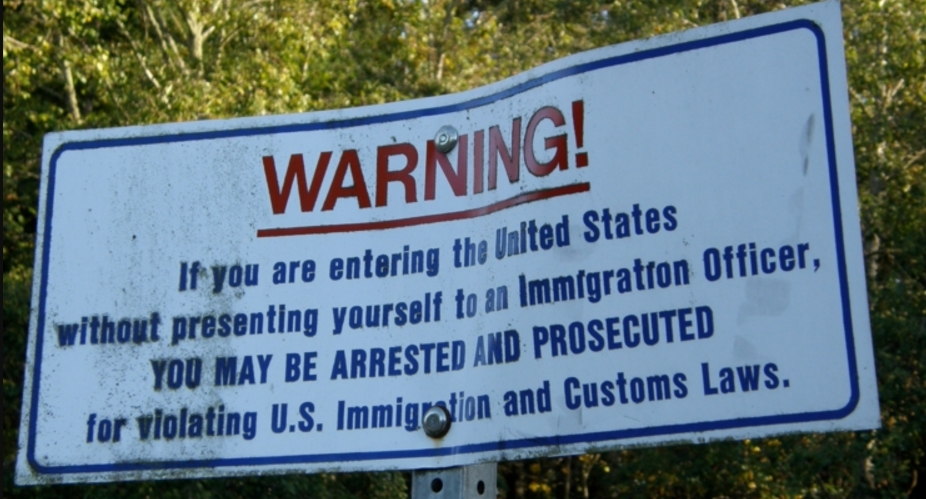
Advertisement
In the early-to-mid 1800s, the Abolitionist movement — the movement to abolish slavery — grew as an increasing number of Americans became passionate about the cause and increasingly turned to lawlessness in order to implement their agenda.
In those days slaves were considered property so the Constitution’s protections regarding “private property” mandated that law enforcers of the times defended those protections. Slaves who escaped and were harbored by Abolitionist whites and their allies were in violation of the law of the land.
By 1861, as we all know, the country went to war with itself to end the “peculiar institution” and grant full citizenship and, slowly, equal rights to all former slaves and their descendants.
Today, there is an eerily similar parallel between the actions of Abolitionists in the 19th century and Left-wing immigration activists today.
One of the most recent examples of this involves a Yale University School of Law professor, Gregg Gonsalves, who recently said flat-out that people should “hide immigrants” from the Immigration and Customs Enforcement (ICE) agency “if we have to,” in blatant violation of immigration laws.
As Campus Reform reported, Gonsalves is adding a 21st-century twist to his call for disobedience. He’s “more than willing to disclose the locations of ICE employees, however, encouraging others to release their home addresses and saying he would have ‘no qualms’ about showing up at those homes himself.”
Which begs the question: Is he a law school professor or an instructor of lawlessness? He obviously believes he’s doing the right thing and that calling for even soft violence against ICE agents and employees is proper and warranted.

“[ICE is] raiding restaurants, setting up roadblocks in New England, getting on buses to check for foreigners,” Gonsalves tweeted in late June. “We’ve unleashed something evil in the United States. Let the pundits debate who’s winning the day as immigrants get rounded up. The rest of us have to fight.”
Fight? Such is the passion of the pro-illegal immigrant movement, whose believers see enforcement of immigration laws as immoral as Abolitionists saw the enforcement of laws governing slavery.
There is a wide difference between slavery and illegal immigration
In a brief Twitter exchange with Campus Reform editor-in-chief Lawrence Jones, Gonsalves said, “we hide immigrants from ICE if we have to.”
That prompted Jones to inquire whether Gonsalves meant he would aid and abet criminals — since entering the U.S. illegally is a crime.
“It’s called civil disobedience,” he argued. “Aiding and abetting is about facilitating crime,” Gonsalves continued, claiming that “here the moral crime is against immigrant children, families, women, and workers.”
Do you see how he justifies lawbreaking by reframing illegal immigration as a “moral” issue?
It’s not just one Yale professor, either. (Related: Conservatives on campus move one step closer to extinction as the intolerant Left drives them from the University of Denver.)
Hundreds of cities around the country have declared themselves to be “sanctuaries” for illegal aliens, where local police are forbidden by statute from cooperating with federal immigration authorities whose job it is to enforce all immigration-related laws. One state — California — has even declared itself to be a sanctuary.
These are patently illegal acts. Under the Constitution’s “Supremacy Clause,” laws duly passed by Congress and signed by presidents become the “law of the land” unless or until they are challenged in federal courts and deemed to be in violation of the Constitution.
But so, too, were all laws pertaining to slavery once supreme. Then as now, Americans are increasingly engaged in civil and legal disobedience in pursuance of their pro-illegal immigrant stance. They are playing the role of the modern-day Abolitionist.
There’s a major difference between slavery and illegal immigration, however, even though Americans like Gonsalves would deny it.
As humans, our moral, cultural, and religious beliefs inform us that no one can ‘own’ someone else; such a condition is offensive to our collective conscience. But nations do have a right (and an obligation) to defend their borders and expect them to be honored.
While the difference seems clear to most Americans, it is less clear to a growing faction of our people. That makes conditions ripe for conflict.
Read more news about civil war trends at CivilWar.news.
J.D. Heyes is editor of The National Sentinel and a senior writer for Natural News and News Target.
Sources include:
Submit a correction >>
This article may contain statements that reflect the opinion of the author
Advertisement
Advertisements















